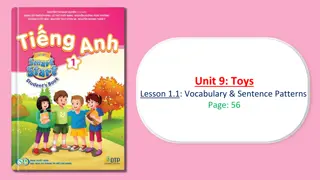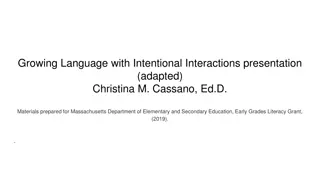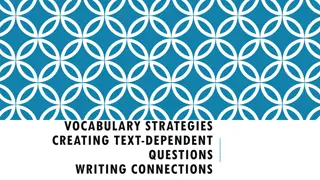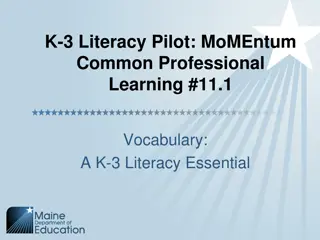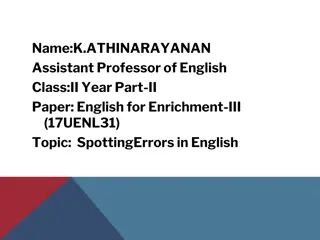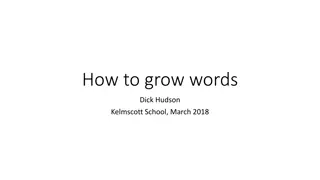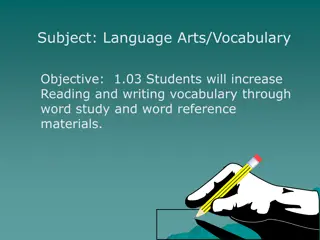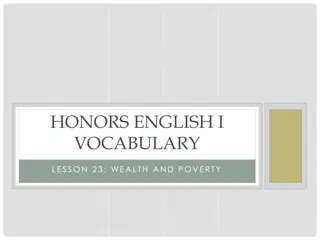Frequently Confused English Vocabulary: Lesson 22
Explore the distinctions between commonly confused words in English vocabulary, such as adverse and averse, emigrate and immigrate, ingenious and ingenuous. Enhance your understanding of these words with clear definitions and illustrative examples. Strengthen your language skills and avoid mix-ups with these nuanced terms.
Download Presentation

Please find below an Image/Link to download the presentation.
The content on the website is provided AS IS for your information and personal use only. It may not be sold, licensed, or shared on other websites without obtaining consent from the author.If you encounter any issues during the download, it is possible that the publisher has removed the file from their server.
You are allowed to download the files provided on this website for personal or commercial use, subject to the condition that they are used lawfully. All files are the property of their respective owners.
The content on the website is provided AS IS for your information and personal use only. It may not be sold, licensed, or shared on other websites without obtaining consent from the author.
E N D
Presentation Transcript
HONORS ENGLISH I VOCABULARY LESSON 22: FREQUENTLY CONFUSED WORDS
ADVERSE (adjective) a. Unfavorable to one s interest or welfare b. Contrary or opposing in intention or effect; hostile Example: After listening to their adverse remarks, I became very discouraged about continuing with the project.
AVERSE (adjective) Having a strong feeling of dislike or reluctance. Example: Cindy was usually averse to criticizing her friends, but she could not let Joey s insulting behavior toward the new student go unnoticed.
EMIGRATE (intrans. verb) To leave one country or region to settle in another. Example: During the American Revolution, many Tories emigrated from the United States and settled in Canada.
FIGURATIVELY (adverb) In a manner marked by metaphorical language or figures of speech. Example: I was speaking only figuratively when I said that my uncle was so lucky that everything he touched turned to gold.
IMMIGRATE (intrans. verb) To enter and settle in a country or region that is not one s native land. Example: For thousands of years, people have immigrated to new areas, escaping harsh rulers or seeking better living conditions.
INGENIOUS (adjective) a. Having or showing creative or inventive skill b. Original or imaginative in design or execution Example: The poet Ogden Nash was an ingenious versifier, and he invented many clever and amusing rhymes.
INGENUOUS (adjective) Showing or having simplicity, openness, and honesty, in a childlike way. Example: Sue was ingenuous enough to believe that talent and hard work alone would inevitably lead to success.
LITERALLY (adverb) a. According to the actual meaning of a word or phrase b. According to the facts; without exaggeration or metaphor Example: Lester took every statement so literally that he could not enjoy a joke.
PERSECUTE (trans. verb) a. To ill-treat persistently and grievously b. To annoy continually; pester Example: Although many groups came to the New World seeking freedom of belief, some were quick to persecute members of their communities who did not agree with their opinions.
PROSECUTE (trans. verb) To bring a legal action against in order to convict of a violation of a law. Example: The farmer prosecuted three hunters for trespassing.

 undefined
undefined














